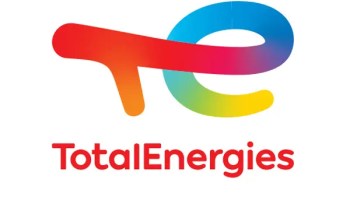
A glucometer, also known as a blood glucose meter or blood sugar meter is a medical device (In-vitro diagnostic) used to measure the approximate concentration of glucose in the blood. It is a key element for home blood glucose monitoring. A persistent elevation in blood glucose leads to glucose toxicity, which contributes to cell dysfunction and the pathology grouped together as complications of diabetes.
Diabetes mellitus is characterized by persistent hyperglycemia from a variety of causes, and it is the most prominent disease related to the failure of blood sugar regulation. There are different methods of testing and measuring blood sugar levels, one of which is the use of blood glucose meters.
The manufacture of blood glucose meters and strips in Nigeria will revolutionize healthcare and make a significant impact in the lives of people living with diabetes in Africa and beyond, the Director General of the National Agency for Food and Drug Administration and Control NAFDAC, Prof Mojisola Adeyeye, has said.
She, however, emphasized the need for the continuous availability of high-quality products that meet world-class standards to be able to strive favorably with competition from Europe and the United States at relatively affordable prices.
Prof Adeyeye made the assertions recently in Lagos during a facility tour of the first In-vitro Diagnostics (IVD) manufacturing site of a health technology company, Colexa Biosensor Limited, a subsidiary of Codix Pharma Limited, in Lagos. The ostensibly excited DG said that as a regulatory body, NAFDAC would continue to monitor the progress of the company and ensure that it remains compliant with good manufacturing practice (GMP) and other global best practices.
‘’I will in addition be looking at FDA standards because It’s accepted anywhere in the world’’, she said, adding that the Agency would with the company for the necessary assistance in their regulatory compliance., as it does with others to provide the needed guidance.
For an African medical device company, she said the feat would go a long way in improving the health of nations through access to quality, innovative, technology-enabled healthcare solutions for the prevention, early diagnosis, and management of diseases.
Prof Adeyeye, however, advised the company to focus more attention on the local market by making quality products that are readily available to Nigerians before venturing into the global market with its 12 locations in Africa, including UAE and UK. NAFDAC will only allow export of quality products with proven safety and efficacy.
According to the company, the introduction of a new plant in Shagamu, things will be a lot easier when that plant becomes operational in October next year. “Regarding procurement by international partners, it is quality that is going to sell the product. NAFDAC has the tiered categorization scheme where the Agency has risk-categorized companies into Low, Medium, and High categories. The Agency is working with international partners such as UNICEF to understand and use this approach for procurement of some medical products and ready-to-use-therapeutic foods from our local manufacturers’’, the DG remarked.
The NAFDAC boss, however, urged the company to constitute a research team that will go all out to monitor the selectivity and sensitivity rate once it enters the market in Nigeria, adding that this should go hand in hand with the marketing. The results of this study must be guided by and shared with NAFDAC.
According to her, it will be a lot easier when NAFDAC attains WHO Maturity Level 4, adding that at that point, there will little time spent for pre-qualification for applications submitted post attainment.
As a leading manufacturer of medical devices and in-vitro diagnostics in Sub-Saharan Africa, she commended the company for achieving firsts in several endeavors of its operations, being the first to introduce Malaria Rapid Diagnostic Test (RDT) kits to the national malaria elimination program, which has accelerated the ability to test and treat malaria in a timely manner.
Earlier in his speech, the Chairman of Colexa Biosensor Limited, Mr. Samson Ogunjimi disclosed that the company had provided over 5 million tests of HIV/Syphilis Combo test to the HIV program, helping to increase testing in pregnant women and saving lives.
He added that the company was also the first to introduce the COVID-19 rapid antigen test in Nigeria and provided various platforms for Point-of-Care (POC) COVID testing. Over 15 million test kits were distributed in Nigeria.
Mr. Ogunjimi explained further that the factory is equipped with cutting-edge technology following a technology transfer from a reputable global health organization with an estimated production capacity of 60 million tests of RDTs to be distributed across Africa.
Striving for equitable access to its diagnostics in Nigeria and across Africa, the chairman said the company has an installed capacity (1 line 3 shifts) of 3.6m packs of strips and can be scaled up to 3 lines to enable a maximum total capacity of 10.8m packs of strips per annum.
He noted that this can serve the country’s needs for strips i.e. 10.75 m packs at 5% prevalence of the total population should each obtain 1 pack (50 tests) of strips in 1 year with job opportunities for over 1,000 Nigerians from the manufacture and sales of Blood Glucose Monitoring System (BGMS).
Mr Ogunjimi pointed out that Nigeria could be a hub in Sub-Sahara Africa for the supply of BGMS and related consumables like Lancets, Alcohol swabs, lancet devices, packaging, etc. with opportunities for Research and Development of other tests using the same technology. He added that exports of up to 50% factory capacity can net-off the company’s dollar needs for production.
‘’Global Market size for Onpoint® BGMS stands at $6.4bn and estimated to grow at a Compound Annual Growth Rate CAGR of 8.2%, adding that the Nigerian current market size is estimated at $12m to $18m based on the 2021Clinton Health Access Initiative CHAI report,’’ he said, stating that available data estimates the total verifiable market volume at 1.25m to 1.5m packs in 2022 which is valued at $7.5m to $9m.
Mr. Ogunjimi however, expressed delight in the fact that many investors have started putting machinery in place to begin similar ventures, stressing that the economy would be the biggest gainer for it. ‘’Without us starting this one they wouldn’t have started thinking about their own’’, he said, adding that ‘’we are open for Contract Manufacturing under the supervision of NAFDAC.’’
He explained that the second factory – Codix Bio Ltd located at Ilisan-Ikene Junction, Shagamu, Ogun State would participate in the WHO Prequalification of their products adding that it is a joint[1]venture between Codix Pharma Limited and SD Biosensor (the global leader in RDT manufacture) with the hope to have WHO Prequalified products by 2025.
WHO prequalification or attainment of Maturity Level 4 and World Listed Authority by NAFDAC is a trusted and reputed symbol for safety, quality and efficacy across stakeholders. Gaining prequalification for a product can therefore increase the eligibility for donor-sponsored tenders for such products.





